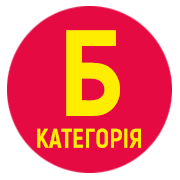THE ROLE OF TEAM INTERACTION IN ACHIEVING HIGH RESULTS IN POWER SPORTS
DOI:
https://doi.org/10.32782/olimpspu/2025.1.21Keywords:
team interaction, strength sports, psychological support, team cohesion, sports resultAbstract
The article examines the importance of team interaction in the process of achieving high sports results in power sports. The main factors that influence the effectiveness of interaction between athletes, coaches and other team members are analyzed, in particular communication, motivation, psychological support and shared values. Psychological aspects are highlighted, such as team cohesion, trust between its members and conflict management. Particular attention is paid to the influence of the coach as a leader, who contributes to the creation of a positive microclimate and stimulates the team to achieve high results. It is concluded that optimizing team interaction is critically important for the development of the personal potential of athletes and increasing the overall effectiveness of training.The results obtained can be used to develop practical recommendations for coaches and sports managers in the field of power sports.Psychological aspects of team interaction, such as cohesion, conflict resolution and the creation of a positive microclimate, are revealed.Particular attention is paid to the role of the coach as a leader, who contributes to the harmonious functioning of the team. Based on the analysis, it was concluded that improving the mechanisms of team interaction is an important factor in increasing the effectiveness of athletes' training. Success in sports depends not only on the physical and technical characteristics of the athlete, but also on interpersonal interaction within the team. Mutual understanding, cohesion, support from the coach and team partners create a favorable environment for the development of the personal potential of each team member. At the same time, conflicts, insufficient coordination of actions or a low level of communication can significantly reduce the effectiveness of the training process and negatively affect the results. Scientific research shows that factors such as emotional support, trust, effective conflict management and shared values are key elements of successful team interaction. However, in practice, these aspects are often ignored, which reduces the team's potential to achieve high results.
References
Олешко В. Г. Підготовка спортсменів у силових видах спорту. Навч. посіб. Київ: ДІА, 2017. 444 с.
Олійник Н.А., Войтенко С.М. Психологічні особливості спортивної діяльності: Монографія. Вінниця: ВНАУ, 2020. 240 с.
Горбунова В. В. Психологія командотворення: Ціннісно-рольовий підхід до формування та розвитку команд: монографія. Житомир: Вид-во ЖДУ ім. І. Франка, 2014. 380 с.
Костюкевич В. М. Теорія і методика тренування спортсменів високої кваліфікації: навчальний посібник. Вінниця: «Планер», 2007. 273 с.
Чала Ю. М., Шахрайчук А. М. Психодіагностика: навчальний посібник. Харків: НТУ «ХПІ», 2018. 246 с.
Вейнберг Р. С. Психологія спорту. Київ: Олімп. літ., 2001. 336 с.
Ложкін Г. В. Психологічний клімат спортивної команди: навч. метод. посіб. Вінниця: ВДПУ ім. М. Коцюбинського, 2006. 113 с.







